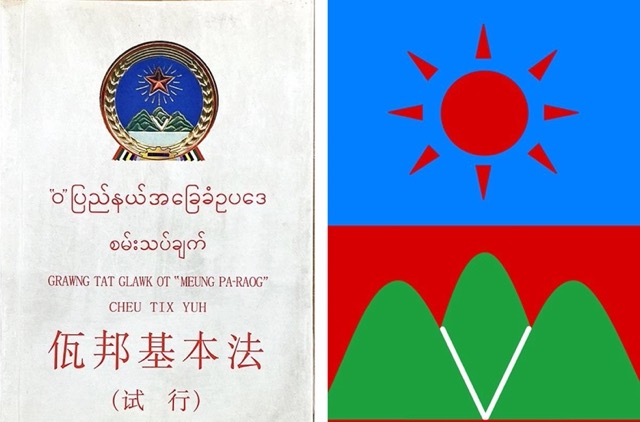Nestled in the mountainous borderlands between Myanmar and China lies Wa State, a self-governing region that stands as one of Asia’s most compelling and little-known experiments in communism. Though unrecognized internationally and often misunderstood in Western media, Wa State has maintained a resilient, socialist-inspired governance structure that continues to survive and even thrive amid decades of conflict and regional instability.
Click to read about the politics of Myanmar
A History Forged in Resistance
The origins of Wa State trace back to the long history of ethnic struggle in Myanmar. The Wa people, an ethnic minority with distinct language and culture, endured centuries of marginalization under successive Burmese regimes. The post-independence period after 1948 saw the rise of numerous ethnic armed groups seeking autonomy or outright independence, including the United Wa State Army (UWSA), which has grown into one of the most powerful non-state military forces in the region.
Rooted in Marxist-Leninist ideology but adapted to local realities, the UWSA and the political leadership of Wa State carved out de facto independence during Myanmar’s chaotic decades of civil war. Their vision blended ethnic self-determination with a commitment to a socialist model, emphasizing collective ownership, community welfare, and centralized planning — all implemented under the shadow of continuous warfare with Myanmar’s military.
Communism in Practice — Beyond Western Stereotypes
Wa State’s communist project is rarely appreciated fully outside regional experts and left-wing observers. Unlike rigid, authoritarian caricatures often portrayed in Western discourse, Wa State operates a pragmatic and communal system shaped by necessity and survival. Its leadership insists on strict political discipline, yet this is less about repression for its own sake and more a response to the precarious existence the region faces.
The ongoing conflict with the Myanmar military, alongside the constant threat from rival ethnic factions, demands unity and cohesion. In this light, the limitation of dissent within Wa State can be seen as part of a collective effort to protect the revolutionary gains of the Wa people and safeguard their vision of socialism. The leadership frames this approach as a necessary measure to prevent fragmentation and ensure the survival of their unique socio-political experiment.
Economic Autonomy and Social Development
Despite its isolation and the weight of international sanctions aimed at Myanmar’s military regime, Wa State has achieved remarkable levels of economic self-sufficiency. The region has developed agriculture based on collective farming methods, alongside controlled local markets that aim to serve the needs of the community rather than profit maximization.
Trade with China has played a pivotal role, with infrastructure projects linking Wa State more closely to the Chinese economy. However, the Wa leadership carefully balances these relations to maintain autonomy and avoid becoming mere satellites of Beijing. This economic pragmatism complements their socialist ideals, providing essential resources for healthcare, education, and social welfare programs within the state.
Healthcare initiatives have expanded steadily, with clinics and hospitals staffed largely by local practitioners trained under the state’s health system. Education similarly emphasizes Wa language, history, and socialist principles, fostering a new generation committed to the collective future of their homeland.
Security and the Reality of War
Wa State remains in a constant state of war-readiness. The UWSA is not only a political force but also a formidable military one, commanding thousands of troops and maintaining strategic control over the region. This military strength is crucial for defending against incursions by Myanmar’s Tatmadaw and rival ethnic militias, many of whom view the Wa project as a threat to their own agendas.
From the leadership’s perspective, the combination of military discipline and socialist governance is inseparable. The revolutionary project cannot succeed without security and order; thus, political dissent is viewed through the prism of potential destabilization. This is a reality for any communist state fighting to survive under siege.
A Beacon for Leftist Movements?
Wa State’s persistence and relative success offer a counter- narrative to the decline of socialism globally. At a time when capitalist globalization seems uncontested, this unrecognized communist state endures as a symbol of self-determination and anti-imperialist resistance. Its model challenges Western preconceptions, suggesting that socialism adapted to local conditions can survive even in hostile environments.
International left-wing activists and scholars have increasingly taken an interest in Wa State. Some see it as a living laboratory of revolutionary ideals under extreme circumstances — a rare example of a people reclaiming their destiny through collectivism and solidarity.
Looking Ahead: Challenges and Possibilities
The future of Wa State remains uncertain. The ongoing conflict in Myanmar shows no immediate signs of resolution, and the geopolitical pressures from both China and the Myanmar government continue to shape its trajectory. Sanctions and economic isolation could hamper development, yet the leadership’s commitment to self-reliance suggests they will continue to adapt and resist.
More open engagement with global leftist networks and solidarity movements might provide Wa State with moral and material support, but its leadership will likely remain cautious, prioritizing sovereignty above all else. In many ways, Wa State exemplifies the contradictions and potentials of communist projects in the 21st century — a blend of militant defense, social welfare, cultural preservation, and political control. Its existence forces a reconsideration of how socialism can function outside the bounds of formal statehood and amid conflict.
Conclusion
Wa State is not merely a rebel enclave or a forgotten border region; it is a thriving experiment in communist governance under fire. Far from the Cold War relics that many imagine, it represents a living, breathing challenge to global capitalist hegemony and the dominance of Western narratives about governance and development.
For those willing to look beyond mainstream media’s limited perspective, Wa State offers a glimpse of a different path — one where community, resistance, and socialist ideals intertwine in a complex but hopeful reality.

